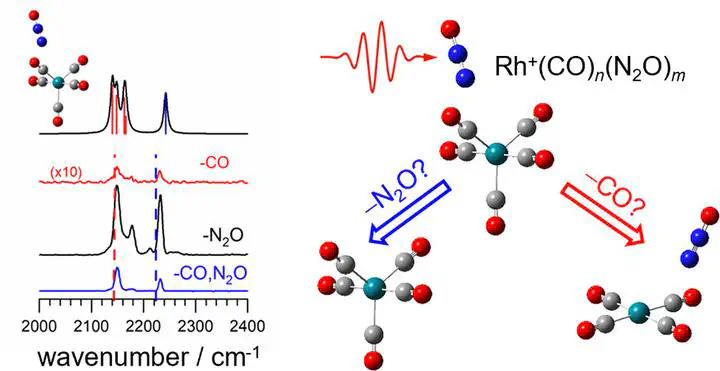A Combined Infrared and Computational Study of Gas-Phase Mixed-Ligand Rhodium Complexes: Rh(CO)n(N2O)m+ (n = 1–5, m = 1–4)
 Image credit: ACS, J. Phys. Chem. A
Image credit: ACS, J. Phys. Chem. AAbstract
In this study, mixed carbonyl and nitrous oxide complexes with Rh+ were studied by mass-selective infrared photodissociation spectroscopy in a molecular beam. The infrared spectra, recorded in the region of the CO and N2O N═N stretches, were assigned and interpreted with the aid of simulated spectra of low-energy structural isomers. Clear evidence of an inner coordination shell of four ligands is observed. The observed vibrational structure can be understood on the basis of local mode vibrations in the two ligands. However, there is also evidence of multiple low-lying isomers and cooperative binding effects between the two ligands. In particular, σ donation from directly coordinated nitrous oxide ligands drives more classical carbonyl bonding than has been observed in pure carbonyl complexes. The observed fragmentation branching ratios following resonant infrared absorption are explained by simple statistical and energetic arguments, providing a contrast with those of equivalent Au+ complexes.